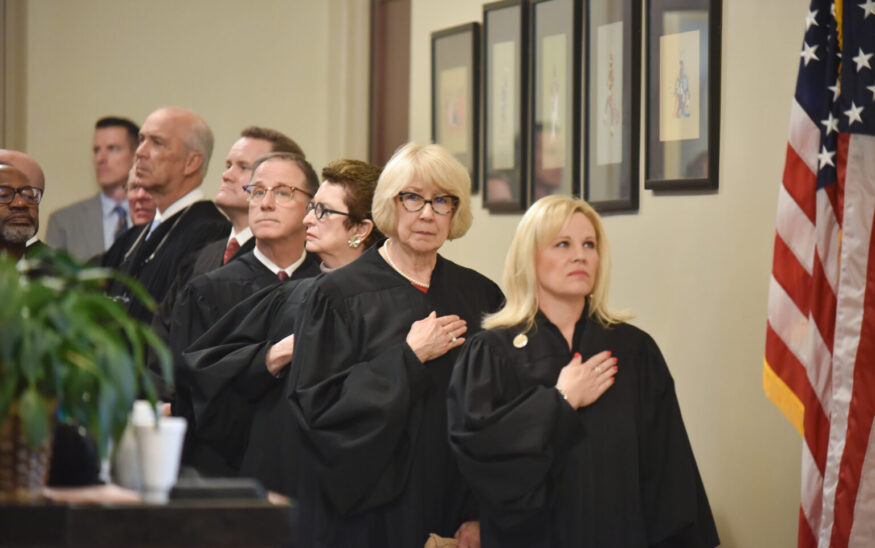The Oklahoma Supreme Court has temporarily blocked the implementation of new social studies standards after a lawsuit challenged their constitutionality. In a 5-2 ruling issued on Monday, the Court mandated that Oklahoma public schools revert to the previous standards approved in 2019 while the case is under consideration.
The plaintiffs, a group consisting of 33 parents, teachers, and faith leaders, filed the lawsuit on July 1, 2023, asserting that the new standards unconstitutionally impose Christian beliefs on students. They argue that the Oklahoma State Department of Education and the state Board of Education failed to comply with laws and regulations, particularly the Oklahoma Open Meeting Act, when they approved the new standards in February.
Some board members expressed surprise that the version of the standards they approved contained significant deviations from the original draft released by the Education Department in December. Among the contentious elements are claims regarding perceived discrepancies in the 2020 presidential election results and assertions about the origins of COVID-19 stemming from a Chinese laboratory.
The Education Department delayed weeks in publicly disclosing the final version of the updated standards, which included these controversial points. Critics point out that neither the board’s agenda nor state agency staff informed the public about the changes prior to the vote.
Concerns Over Religious Imposition
Academic standards dictate the topics that public schools in Oklahoma must teach at various grade levels. The plaintiffs contend that the new social studies standards infringe on students’ religious freedoms by mandating that schools instruct from the Bible. Under the proposed guidelines, elementary students would learn Bible stories and the teachings of Jesus that allegedly influenced American colonists and founding figures. Fifth and eighth graders would be required to study the Judeo-Christian values that shaped the United States.
Representing the plaintiffs are attorneys from Americans United for Separation of Church and State and the local Oklahoma Appleseed Center for Law and Justice. Brent Rowland, legal director of Oklahoma Appleseed, stated, “Public school classrooms may not be used to endorse religious doctrine — no matter what the religion is or how many people follow it. Blocking these standards means Oklahoma students can learn history and civics in a way that respects every family’s beliefs while inspiring them to think critically, ask questions, and engage as informed members of our democracy.”
State Superintendent Ryan Walters, whose administration crafted the new standards, criticized the Court’s decision, claiming it does not reflect the views of Oklahomans. He stated, “The Oklahoma Supreme Court is embarrassing and clearly is out of step with Oklahomans.”
Dissenting Opinions and Future Proceedings
The ruling saw concurrence from Justices James Winchester, James Edmondson, Douglas Combs, Noma Gurich, and Richard Darby. In contrast, Chief Justice Dustin Rowe and Justice John Kane IV dissented. Kane proposed that the case should first undergo examination in a trial court, while Rowe provided a more extensive dissenting opinion. He argued that a trial court, rather than the Supreme Court, should address allegations of violations related to the Open Meeting Act.
Rowe expressed concern over the timing of the injunction, noting that the new standards were already in effect for the 2025-2026 school year. He contended that issuing an injunction months after the alleged violation and after the academic year had commenced would disrupt school curricula statewide.
As the lawsuit progresses, the Oklahoma Supreme Court’s decision ensures that the state’s public education system will continue to operate under the 2019 social studies standards, pending further developments in the case.
